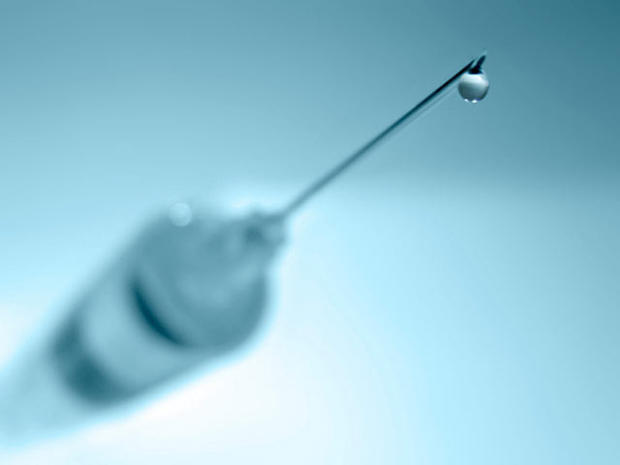Study: Adrenaline injection for cardiac arrest may cause more harm than good
(CBS News) - Although pop culture has shown time and time again that a shot of epinephrine (adrenaline) can help save the life of someone in cardiac arrest, researchers are now saying it may do more harm than good in the long run.
A new study, which will be published March 21 in the Journal of the American Medical Association, took a look at epinephrine use in people going into cardiac arrest before they arrived at the hospital. Data showed that patients who were given epinephrine were less likely to survive a month, and if they were to survive, were more likely to have neurological problems.
PICTURES: 12 simple ways to prevent a heart attack
PICTURES: 17 worst habits for your heart
Researchers looked at data from 417,188 patients 18 or older in Japan who suffered an out-of-hospital cardiac arrest before a medical professional could get there. These subjects were treated by emergency medical service personnel and then taken to the hospital. More than 15,000 were treated with an epinephrine injection, while the rest received other care.
In the group that did not have epinephrine administered, the study showed that 5.7 percent of patients had their circulation spontaneously return before they got to the hospital, and overall 4.7 percent of them survived a month after cardiac arrest.
How did the group receiving epinephrine compare? When administered an injection before arriving at the hospital, a much larger 18.4 percent had spontaneous circulation return and 5.4 percent of patients survived. However, negative associations were observed with those patients long-term outcome measures. Epinephrine use was found to affect brain function: Only a quarter of patients in the epinephrine group had good neurological outcomes. These patients fared worse neurologically than their counterparts who did not receive the injections but survived.
Previous research suggests epinephrine can also cause myocardial dysfunction, disrupt cerebral blood flow, and cause ventricular arrhythmias -irregular heart rhythms - during the period after resuscitation.The researchers say that the negative health effects after the administration of the drug may have to do with those risk factors. The study did note that more research needed to done on in-hospital resuscitation data before a positive association can be made.
In an accompanying editorial in the same issue of JAMA by Dr. Clifton Callaway, associate professor of emergency medicine at the University of Pittsburgh, said that this will probably be the largest observational study of its type. While the study suggests through observation that epinephrine may be harmful, Callaway cautions that a randomized trial is needed to confirm connections. The problem is despite the need to know if epinephrine is harmful, a study like that can have unethical implications, such as if a person is in cardiac arrest but only receives a placebo.
Still, Callaway said physicians should exercise caution in using the drug.
"While awaiting results of such a definitive trial, physicians and other practitioners involved in cardiac resuscitation must consider carefully whether continued use of epinephrine is justified," he wrote.



